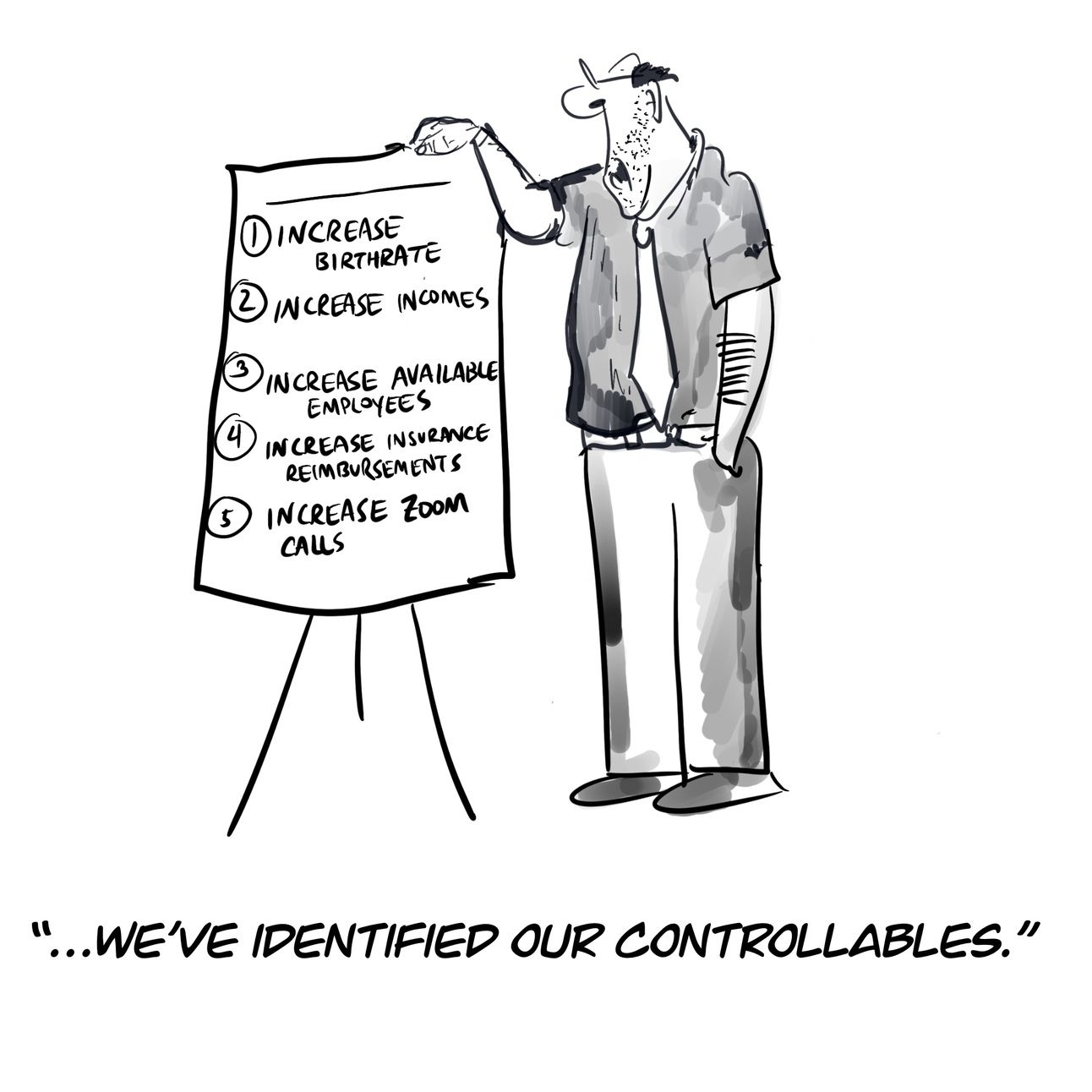- The Moment
- Posts
- The Rules.
The Rules.
12 Rules in 12 Visits.
Read time: 5 minutes.
At a glance:
Quote:
Picture
What I’ve Learned
What you aim at determines what you see.

What I Learned:
“Staying in hiding doesn’t only keep you hidden from the world—it keeps you hidden from yourself.”
Many of my posts are inspired from books. And many posts are written as letters for a specific orthodontist or colleague I have in mind.
One book, in particular, was recommended to me by multiple orthodontists, and to do it justice, I tried to recap its rules back when they appeared to me in practice visits.
Instead of hiding in an email, I’m posting my interpretation:
12 Rules For (Orthodontic) Life
1. Stand with your shoulders back—Accept responsibility for your work, your team, your products, your life. This one was immediate. “Starts are down, dude!” “Our top referral just retired...” “The operations team owns this problem, not the sales team!” I bet you can’t get past two hours without seeing an example yourself. You’re not responsible for the actions of others, but you're responsible for how you react and what you can control.
2. Treat yourself like someone you’re responsible for helping. I wrote an entire article on this topic. The kindest doctors to others are the most self-critical of themselves.
3. Make friends with people who want the best for you. At one of my first jobs, I had a successful teammate: she consistently hit her sales numbers, leadership spoke highly of her, and she was on the fast track. Except every time a new idea was brought up, she rolled her eyes. Sneered. She made it known she disagreed. It became toxic, and although her numbers were successful, if you don’t want the best for the team, you’ll be dropped. And she was.
4. Compare yourself to who you were yesterday, not who someone is today. Want to bring maximum anxiety to a doctor? Have them scroll orthodontic Instagram. This one appeared when one doctor told me she had to delete social media because of the extreme anxiety it was causing her. Social media’s game is to compare. And if you play stupid games, you win stupid prizes.
5. Do not let your staff do anything that makes you constantly dislike them. Dino Watt hit on this in our interview: “The best way to ruin a great employee is to accept the behavior of a terrible one.”
6. Set your practice in perfect order before criticizing the world: I had a conversation with an orthodontist in San Francisco. He summed this up beautifully: “Everyone’s upset at something, GPs, OSOs, and they all see it as competition! Guess what? We have 4% of the available market in treatment. Until that number is 94%, there’s plenty for your practice to grow without worrying about everyone else. Focus on yourself before you blast others!’
7. Pursue what is meaningful. This industry can be laser-focused on starts, size, dollars, and production. Anything that doesn’t bring in an income stream can quickly get dismissed as “a waste of time.” Don’t fall victim to this. There’s a graveyard of podcasts, art, newsletters, consultants, music, new industry speakers, books, videos, crafts, patient gifts, photography, and unused talent in this industry that will never see the light of day because of this line this ortho said to me, “I know, I know, my book idea is stupid …. I need to get back to focusing on starts.”
8. Tell the truth – or at least don’t lie. I’ll fall on the sword on this one. There were too many examples to pick from. I couldn’t write this post without lying to my wife that I was “almost done” … a gut punch.
9. Assume the person you are listening to might know something you don’t. The smartest, kindest, and most intelligent people in this industry aren’t the ones you think. This may be the most important rule of all.
10. Be precise in your speech and articulate clearly. Have you ever had a team meeting where it seems nothing gets accomplished? Just rambling, complaints, and a tangent conversation? I learned this from the team at Articulation, Inc. Try reframing the agenda as a question that needs to be answered. “We're going to talk about marketing” isn’t as focused as “What are three things we can implement today to maintain consistency in our posts?”
11. Allow those to take risks. Scott Hansen, CEO of LeadSigma, was front and center for this one when I asked about his billboard to the world: “Do it… it doesn’t have to be perfect.” Millions in this industry will be lost not by what is tried but by what isn’t. That includes retainer programs, new observation programs, new scripts, and new appliances. Perfection and fear will kill revenue far more than mistakes and embarrassment.
12. Enjoy the small moments. When I ask retired orthodontists what they miss most about practice, it’s always the people. And the small, specific interactions.
One day, whatever you’re doing will be the last time you do it: Turning on the lights of your office, chatting to a teammate, sipping coffee in a breakroom, and locking the front door.
“You don’t know when the curtain will draw on this life of yours, as any day could be your final act.
Take it all in, my friend.”
Inspired, and sourced by 12 Rules for Life: An Antidote to Chaos. Jordan Peterson. Penguin Books. 2019.